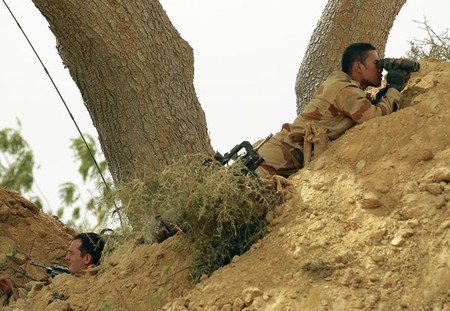Did the Libyan war trigger the chaos in Mali?

Anthropologist Bruce Whitehouse dismisses the idea that the overthrow of Gaddafi or U.S. military training led to the chaos in Mali:
This would make sense if most of the US-trained officers in Maliâ??s armed forces had defected to the rebels. But thatâ??s not the case: Pentagon-sponsored training was provided to a broad cross-section of officers and NCOs in the Malian military, of which the defectors (most of them Tuareg) made up a minority. US-trained personnel fought on both sides of the conflict: at best the effects of their training were canceled out, at worst they were negligible. The problem with the US militaryâ??s training program wasnâ??t that it benefited the wrong people, itâ??s that it didnâ??t work. Following exercises in 2009, detailed in Wikileaks, even one of the Malian armyâ??s most elite units got poor evaluations despite lengthy collaboration with US trainers. Whatever â??advantageâ? such collaboration may have provided, it was the last thing the Tuareg â?? experienced desert fighters â?? needed to defeat Malian government forces.
Whitehouse also clarifies the nature of the conflict:
Moreover, Iâ??m not sure how accurate it is to call the forces fighting against the French â??Malian rebelsâ? or to describe the conflict as a â??civil warâ??â??the command structures of AQIM and MOJWA in particular are dominated by Algerians and Mauritanians. Malians widely perceive these groups as foreign invaders, motivated by racism and greed as well as a perverted, even ignorant view of their faith.We cannot say that the war in Mali is primarily about natural resources, Western meddling, or religion. We can say, however, that it is a direct consequence of state failure, which as I have argued elsewhere came about largely due to factors internal to Mali.
Via: Sullivan.
(AP Photo)



